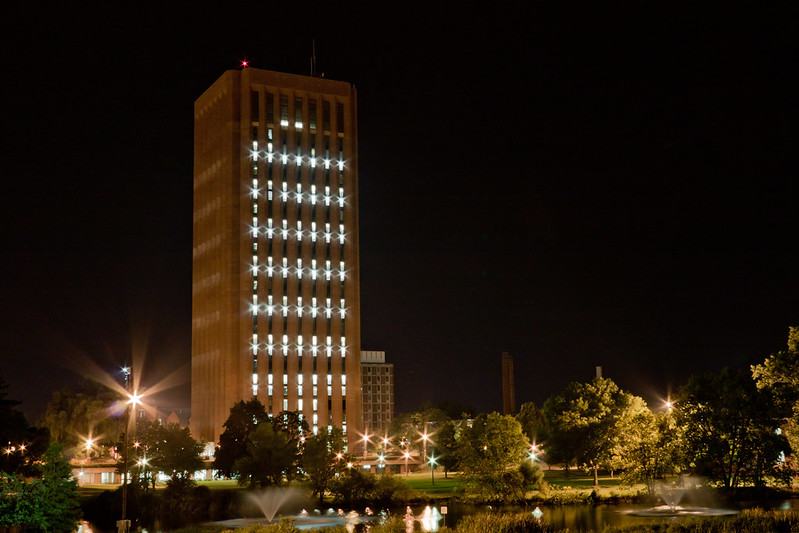Imam Siraj Wahhaj, an African American Muslim leader and speaker, gave a talk titled “Black History in Islam” on Wednesday, Feb. 28. The event took place in the Student Union Ballroom as part of the Muslim Student Association’s Islamic Awareness Month.
“Imam Siraj Wahhaj is a prolific speaker who has had a tremendous impact on the community,” said Yusuf Elley, president of the MSA.
Wahhaj is the Imam of Masjid At-Taqwa, a mosque in Brooklyn, New York. He has served as the imam since its beginnings in 1981, where 25 people would congregate for the Friday prayer in a Muslim family’s living room.
He talked about how he led his community in an anti-drug patrol in 1988, where they staked out drug houses in Bedford-Stuyvesant for 40 days and nights in the winter, forcing the closure of 15 drug houses. These efforts received high praise from the New York City Police Department and international media, Wahhaj explained.
He was also the first Muslim to give an opening prayer for the United States House of Representatives in 1991.
Wahhaj talked about his journey to Islam and he told the audience he recently realized it was his 50th anniversary of being a Muslim.
He then proceeded to tell a story about how he quit his job to sell a 25-cent newspaper called “Muhammad Speaks.” “Muhammad Speaks” was a Black-Muslim newspaper published in the United States and was one of the most widely read newspapers ever produced by an African American organization, he said, that was founded by a group of ministers that included Malcolm X.
“If you know anything about the Nation of Islam, you know the love that we have for Black people.”
He continued to recount stories from his life, moments from Islamic history and recited verses from Islam’s holy text, the Quran. He ended his talk with a story told by the Prophet Muhammad.
In the story, a man was traveling in a desert and was longing for water. He came across a well but there was a dog nearby as well. Before he quenched his thirst, he gave a sip of water to the dog. The imam used this this story to describing the impact small acts of kindness can have and the context of this in Black History Month.
“What about the Black people in the university?” Wahhaj said. “What about in your city? Your block? Do you give them a kind word? I’m saying [that] when you care, it shows.”
He expressed his opinion on Black History Month, wanting to make his point clear.
“If you noticed, I didn’t spend a lot of time on it,” he said. “We got the point. I don’t think we have to do it every year. I’m not against it.”
He goes on to clarify his remarks. “I don’t want to come across that I am against Black History Month. I do think we need to deal with some of the issues that we may have internally with African Americans. I do think that we should have some discussion, I do.”
Muslim and non-Muslim students attended the event. When it ended, some of them reflected on the event.
Juan Valencia Gallego, a sophomore managerial economics and political science major, was a non-Muslim student who attended the talk. “Being non-Muslim, it was a good experience,” he said.
“[I could] experience a different type of culture and a different point of view of history for Black History Month. I will totally recommend stuff like this for other guests that might be interested in just knowing more of what religion and our cultures can do together,” Diego concluded.
Amena Bhatti, a sophomore political science major and vice president of MSA, talked about the importance of this event and having Imam Siraj speak.
“I think a lot of like Black Muslims are alienated on campus and they feel like they don’t belong,” she said. “In MSA, we’ve had conversations about this before and heard from students themselves.”
Anas Sbai, a senior psychology and Middle Eastern studies major, shared similar views, “I’m hoping that this could be an opportunity to build some more bridges and to allow MSA to be more well-connected with other demographics and communities on campus.”
Sadaf Tokhi can be reached at [email protected]. Noureddine Ghafs can be reached at [email protected].



















